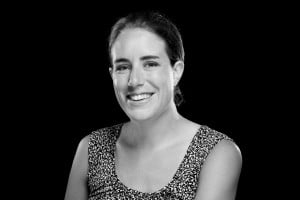Today we are continuing the interview with Chris Heuertz (his Facebook and Twitter) on his new, vulnerable book, Unexpected Gifts. In case you missed them, check out both Part 1 (my overview of the book) and Part 2 (the beginning lessons of living with Mother Teresa).
Andrew: In this book you tell a powerful story about visiting a refugee in Sierra Leone during the civil war over blood diamonds. The camp hosted thousands of survivors of amputations, mutilations and dismembered (a common war crime during the conflict) not just by militants, but by children forced to fight as soldiers now having to face what they were forced to do. How do you reconcile a good God with such an environment?
Chris: “Our first visit to Freetown, Sierra Leone was at the end of the civil war, but the rebels still controlled over 60% of the country. Many of the things we were exposed to this day are unspeakable. Many of the trauma stories we heard during that visit are among the most painful words that have ever washed over my ears.
There were 5 of us who had been part of an exploratory team to determine if our community could offer an abiding presence of hope and peace—and we did organize a community that moved to Sierra Leone and remains there to this day. But after the 5 of us returned home we experienced a form of secondary post-traumatic stress that caused a few of us to question God’s goodness.
This has not been an uncommon experience for those of us who have worked among populations of extremely poor people.
I was forced to face this as a university student volunteering with Mother Teresa.
The Home for the Dying, the first project launched by Mother Teresa, is a hospice that opens its doors to women and men passing from this life into the next. During my first seven weeks there I tended to nearly fifty dead bodies. On the fourth of July that year, a sixteen-year-old boy from a West Bengal village died in my arms. No fireworks brightened the sky, no hot dogs sizzled on the grill. That afternoon a young man’s suffering and slow death exposed to me a different kind of independence. It’s hard to describe the level of devastation there.
Some of the world’s most graphic and intense human suffering is contained within the walls of that home. Though vibrant sunlight pours through the windows, the home is permeated by putrid smells of decaying flesh from those with leprosy. Its unassuming stillness is broken by a cacophony of hacking coughs from men and women dying a slow death from tuberculosis.
I must confess, through the years I’ve been guilty of tightening the frames of doctrine around the mysteries of God. I’ve done my best to hold to the beliefs passed down to me by my parents and churches. I grew up believing that everything in the Bible was true and that the stories were not myths but to be read literally. As I’ve aged, however, I’ve become more captivated by the mysteries of God. I’ve been forced to grieve the security that my childhood faith provided. I’ve become enamored by questions rather than answers, allowing those uncertainties to press me deeper into faith.
In the Home for the Dying I was faced with legitimate questions. The unanswered prayers for life uttered by the men and women in that home forced me to explore the credibility of God’s nearness to those in need. But I felt guilty about that. Doubt was just beginning to introduce itself to me, and I was unprepared to face it.
Somehow it’s been the resiliency of our friends who are poor that has led me, grounded me. I’m still surprised that the poorest people I know often have the richest faith. Though their faithful prayers seem to be absurd and go unanswered, in light of what they’ve experienced, they still remind us that when we lose hope we lose everything. They can’t afford another loss, even the loss of hope, so faith is a necessity. We all know that the doubts will come— they should come, if we’re honest— but they don’t have to overcome us.
Together we remind one another of God’s presence, faithfulness, and nearness. We do this with courage and humility. We accept that doubt and questions are a natural part of faith; that they belong in our lives and our communities.
Today I actually take comfort in doubt. It presses faith to demonstrate (not prove) itself. And there’s no better place for faith to reveal itself than through the fragility of community— the space where doubts are safely explored and faith can be incubated.”
Much love.











